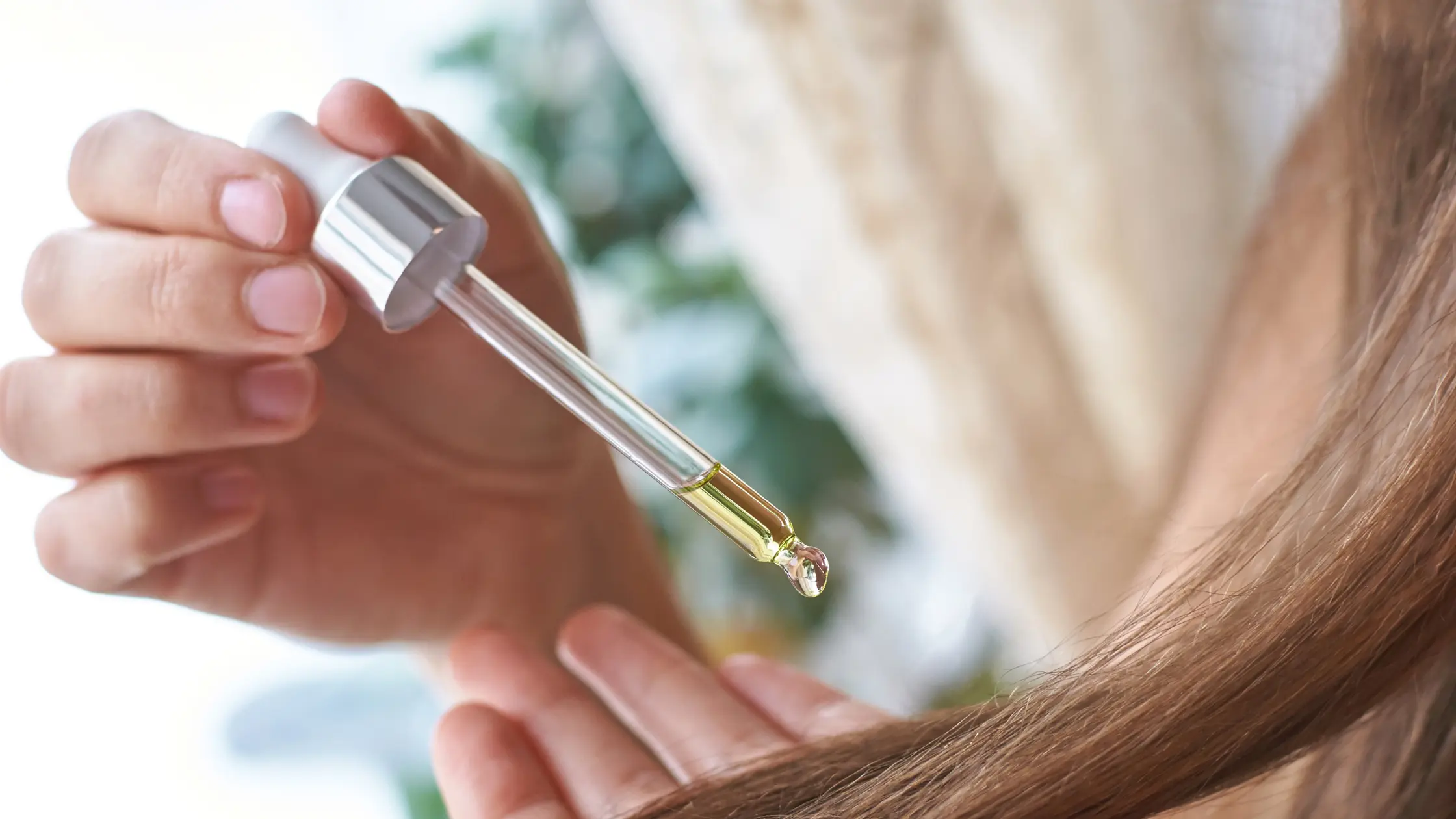Hair fall is no longer just a cosmetic concern, it’s a full-blown health and confidence crisis for millions. And as prescription medications continue to raise concerns over side effects, a growing number of people are turning to natural DHT blockers in search of a safer, more sustainable solution.
This shift is more than just a trend; it’s a movement. From holistic dermatologists to TikTok trichology influencers, the buzz around naturally inhibiting DHT has reached a new peak.
So, what’s driving this surge in interest? And can ingredients like pumpkin seed oil and green tea really outperform traditional medication like finasteride and minoxidil when it comes to battling baldness?
Let’s break down the science and the hype behind this natural DHT blockers for controlling hair fall.
What Is DHT And Why Is It Causing Hair Fall?
DHT (dihydrotestosterone) is a potent androgen derived from testosterone. It plays a key role in puberty and male traits, but when it comes to hair, it’s a major disruptor. DHT binds to receptors in your scalp and causes hair follicles to shrink, a process known as follicular miniaturization.
Over time, this results in thinner strands, shorter growth cycles, and eventually, hair fall.
Why Are Natural DHT Blockers Effective?
Pharmaceutical options like finasteride and minoxidil have been proven effective but not without risks. Reported side effects include sexual dysfunction, hormonal imbalances, mood changes and depression and skin irritation or allergic reactions.
In contrast, natural DHT blockers work more subtly.
They aim to inhibit the same enzyme (5-alpha-reductase) that converts testosterone into DHT without interfering drastically with your hormonal system. Many of these natural options also come with additional benefits like anti-inflammatory effects, antioxidant protection, and improved scalp circulation.
And here’s the real scoop: They’re often already sitting in your kitchen or pantry.
Saw Palmetto
Arguably the most well-known natural DHT blocker, saw palmetto is a small palm native to the southeastern U.S. It works by inhibiting both type I and II 5-alpha-reductase, making it a gentle but effective way to slow hair fall. A study found that topical saw palmetto extract improved hair density and reduced shedding over 24 weeks.
Pumpkin Seed Oil
Rich in zinc and phytosterols, pumpkin seed oil has shown strong DHT-blocking potential. It also provides omega fatty acids that support overall hair shaft strength.
Green Tea
Green tea contains a compound called epigallocatechin gallate (EGCG), which has been shown to inhibit DHT and promote hair regrowth. It’s also a strong antioxidant, reducing oxidative stress on hair follicles.
Stinging Nettle Root
Traditionally used in herbal medicine, this anti-inflammatory root contains compounds that help block DHT and improve blood flow to the scalp.
Reishi Mushroom
An adaptogenic powerhouse, reishi mushroom has been shown in lab studies to reduce 5-alpha-reductase activity. It also helps combat stress, a known trigger of hair fall.
Flaxseeds
Loaded with lignans and omega-3s, flaxseeds help balance hormones and reduce DHT levels. They also support scalp hydration and hair strength. Always grind them fresh before adding to smoothies or yogurt.
Turmeric
The golden spice known for its anti-inflammatory benefits also plays a role in reducing androgen activity. Curcumin may help regulate hormonal imbalances and support a healthier scalp microbiome. Golden milk lattes or weekly scalp masks combined with aloe vera gel.
Do Natural DHT Blockers Really Work?
Yes, with realistic expectations.
Natural DHT blockers work gradually. You won’t wake up with a fuller head of hair in a week, but over the course of 3 to 6 months, many users report:
- Noticeable reduction in hair shedding
- Growth of fine baby hairs along the hairline
- Thicker, shinier strands
- Less inflammation or flaking on the scalp
Keep in mind that genetics, stress levels, and overall diet all play a role. But as part of a holistic approach, these ingredients can be powerful allies.
How To Use Natural DHT Blockers Effectively?
- Combine topical and oral options: Use pumpkin seed oil on the scalp while consuming flaxseeds or green tea internally.
- Be consistent: Most studies show results at 12–24 weeks of daily use. Consistency is key.
- Watch your overall health: Too much sugar, poor sleep, or chronic stress can override the effects of even the best blockers.
- Avoid clogging your scalp: Stick to lightweight oils or herbal tonics. Always double-cleanse if using oil-based products.
Are Natural DHT Blockers Worth the Hype?
In a world where we’re increasingly cautious about what goes into and onto our bodies, natural DHT blockers offer a promising bridge between science and self-care.
They’re not miracle workers but for many, they’re a game-changing part of the hair fall control puzzle. Safe, accessible, and often delicious (hello, green tea and flax smoothies?), these natural remedies could be exactly what your scalp’s been craving. And for those not ready to commit to medications, they’re certainly worth a try.








